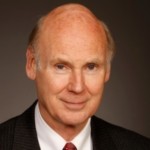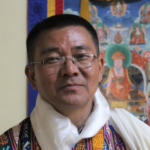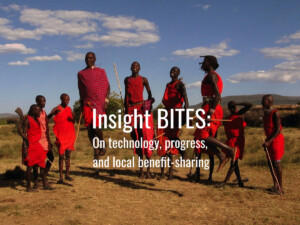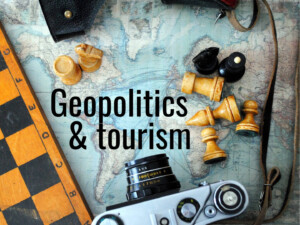Tourism stakeholders: Who has an outsized voice? Who has no voice? Who cares?

Among tourism stakeholders, who has an outsized voice, and who has no voice? Why is this important where you live and work?
It’s a “Good Tourism” Insight Bites question.
Your correspondent put the question to the travel & tourism stakeholders in the “GT” network, inviting responses of no more than 300 words. (You too can join the “GT” network. Register.)
And thanks to Rieki Crins for her “GT” Insight BiteX. (You too can write for “GT”.)
Bites menu
- ‘Most important voice’ rarely heard
- The game-changers
- The ‘very foundation’ remains voiceless
- It’s time to speak up for ‘stakeholder management’
- ‘Balanced representation essential’
- ‘Balancing stakeholder voices crucial’
- Power imbalances ‘create tension and conflict’
- Discordant voices
- Is mine an outsized voice?
- ‘Those who can’t holiday are the stakeholders we should hear’
- Sidelined communities seek representation in the face of manipulation
- ‘I’m here for the listeners’
- “GT” Insight BiteX (‘X’ is up to you)
- How do we encourage tour customers to slow down?
- What do you think?
- Featured image (top of post)
- Previous “GT” Insight Bites
‘Most important voice’ rarely heard
Robin Boustead, Founder, Great Himalaya Trail, Nepal
Tourism media is a cacophony of business interests and destination marketers-cum-managers. This disharmonious chorus rarely looks beyond selfish interests.
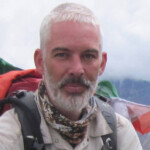
Although there are nascent pockets of stakeholders vocalising sustainable and transformative principles and practices, they need to shout to be heard.
The dominant voices are the business heavyweights; large in terms of their turnover, capital investment, and/or the sheer number of inbound visitors they serve.
The predominance of their commercial interests has marginalised ‘other’ or alternative voices for decades. Only since COVID-19 have we sometimes heard a peep from communities rising to exclaim dissatisfaction with overtourism.
But the most important voice is very rarely, if ever, heard. Representing the critical success factor for tourism, and indeed all human activity, is the voice of nature.
That the most important ‘asset’, ‘resource’, and ‘externality’ is the least represented and the last considered is self-evident in curated nature spaces where humans gorge themselves in a hubbub of self-satisfaction.
Whether it manifests as the local park, your favourite beach, the best hiking trail nearby, nature has been put out on display — to smile and be quiet — by those aforementioned dominant voices.
The unintended consequence of their song: nature strangled by overexploitation and unsustainable development.
We see this in every tourism location where there is a lack of governance and/or which is controlled by vested interests. I’m struggling to think of places where this isn’t a problem.
I’m worried that World Heritage Sites are particularly at risk … there goes saving anything for future generations!
The game-changers
Saverio Francesco Bertolucci, Business Development Specialist, VDB Luxury Properties, Spain
The higher one’s position in an organisation or society, the higher the probability that one will be heard; at industry or academic conferences, for example, or in the form of air time and column inches.
Professors with many citations and books generally have an outsized voice compared to CEOs and executives who put things into practice. But citations and presentations at conferences don’t necessarily correlate with feasible real-world policy.
In practice, the many silent voices of those who earn their livelihoods from travel & tourism play a much more crucial role than the keyboard warriors, virtue signallers, and ‘influencers’ on the internet.
The latter may be able to appeal to and influence the decisions of a few of their followers, but never at the same level as executives making supply chain and marketing decisions for their businesses and destinations, which can at any time change the game for many tourism stakeholders.
In short, those who stay quiet and work hard often end up becoming the important strategists, while the outsized voices often belong to professors and influencers.
The ‘very foundation’ remains voiceless
Willem Niemeijer, CEO, YAANA Ventures, Thailand
I have seen firsthand how financial institutions, such as banks and investment firms, hold disproportionate sway. These entities drive major decisions behind large-scale hotel developments, entertainment complexes, and resort chains. Their focus on profit and returns on investment often dictates the direction of tourism, overshadowing other crucial aspects such as sustainability and community well-being.
On the other hand, nature itself, the very foundation of ecotourism, remains entirely voiceless. The ecosystems, wildlife, and natural landscapes that tourism depends on are frequently left vulnerable, with little say in how they are treated or protected.
This is especially true in Southeast Asia, where fragile environments are regularly sacrificed for short-term financial gains.
Indigenous communities and local stakeholders who understand the value of protecting these natural resources are often sidelined in favour of big business interests.
This imbalance is critical because it shapes the future of sustainable tourism in the region. Without prioritising the voice of nature and those advocating for it, we risk losing the very assets that make these destinations unique.
Small-scale tourism projects with an outsized vision for environmental and community care — Visama Mae Chan, Anurak Community Lodge, and Cardamom Tented Camp for example — seek to redress this imbalance.
The return on investment in ecotourism projects is often misunderstood, as traditional financial and hospitality models do not apply. Organisations like APOLA (the Asia-Pacific Outdoor Lodging Association) and The Long Run aim to change this narrative.
[YAANA-affiliated projects Anurak Community Lodge, Cardamom Tented Camp, and Visama Mae Chan are valued “Good Tourism” Partners.]
It’s time to speak up for ‘stakeholder management’
K Michael Haywood, publisher, ‘Destinations-in-Action’, Canada
Every stakeholder sees themselves as the main character or protagonist in their own story.
Throughout tourism’s development cycle, however, there always will be a few dominant, power-broker stakeholders. But when there is agreement to conform to norms, and the protagonists acknowledge their inter-dependencies, voices calm.
Everybody has a voice. Whether or not they are heard depends on who people choose to listen to. Stakeholders listen when what is being said is relevant, resonant, and complies with people’s interests and concepts of value creation. But therein lies the dilemma.
- When communities seek investment, the voices that matter are those that control the purse strings: financiers, investors, and developers.
- As tourism develops and grows, the voices that dominate are the leaders, managers, and associations who maintain operational and supply-side control.
- On the demand-side, it’s the ad agencies, the marketeers, branders, and the influencers that dictate and control the message; “the medium is the message”.
- With stakeholders confused by civil strife, cultural change, and tourism‘s ability to create community shared value, stakeholder voices fragment and become more strident.
As attention shifts to tourism as a destructive rather than positive force, suddenly the voices of environmentalists, anti-capitalists, climate activists, and NGOs start to take center stage. Though perceived as rebellious antagonists, they see themselves as righteous protagonists fighting against established establishment ways.
Drowned out are boot-strapped entrepreneurs struggling to survive, and the citizens of communities whose neighbourhoods are becoming overrun, their livelihoods and lives being disrupted through servitude, inflation, and gentrification.
It’s time more communities-as-destinations vocalised the need to organise, monitor, and improve relationships among tourism‘s stakeholders. It’s a process called stakeholder management, a topic given attention in my substack blog, Destinations-in-Action and book, Astonish! Smarter tourism by design.
‘Balanced representation essential’
Dorji Dhradhul, author and creativist, Bhutan (former Director General, Bhutan Tourism)
Tourism stakeholders wield varying levels of influence. Certain individuals and large tourism companies, often those with connections to political parties, hold outsized voices.
These individuals and companies, due to their affiliations and resources, significantly impact tourism policy, lobbying for favourable regulations and influencing decisions that benefit their business interests. This influence can lead to prioritising profitability over the cultural and environmental values that Bhutan’s tourism industry strives to uphold.
On the other hand, smaller tour operators and community-based tourism initiatives typically have little or no voice in policy discussions. These stakeholders often lack the financial resources and political connections needed to influence the industry’s direction. As a result, they may struggle to compete and face challenges in maintaining their businesses.
Local communities that depend on tourism for their livelihood also find themselves without representation, even though they bear much of the industry’s impact. This disparity is particularly significant in Bhutan, where the “High Value, Low Volume” tourism model emphasises sustainable growth and equitable benefits.
When policy-making is dominated by a few large players, and voices crucial for a truly sustainable and inclusive tourism industry are sidelined, it risks undermining the principles of the High Value, Low Volume model, potentially leading to over-commercialisation, environmental degradation, and cultural dilution.
Ensuring balanced representation among stakeholders is essential for Bhutan’s tourism to remain true to its values. By giving a voice to smaller operators and community initiatives, Bhutan can better preserve its cultural heritage, protect its environment, and distribute economic benefits more equitably, aligning the tourism sector with the nation’s Gross National Happiness philosophy.
‘Balancing stakeholder voices crucial’
Owen Morris, Partnership Development Manager, Khiri Travel, Thailand
Globally, certain stakeholders hold outsized influence, while others remain voiceless. This can create an imbalance that shapes the direction of tourism development.

The most influential voices tend to be large businesses and international corporations. These groups possess the financial resources, connections, and marketing power to drive decisions about infrastructure, policy, and promotional strategies.
For example, large hotel chains, airlines, and tourism agencies often steer the narrative around tourism priorities, focusing on high-revenue-generating sectors like mass tourism and exclusive resorts.
On the other hand, marginalised communities, local small businesses, and the environment itself often have little to no voice in the decision-making process. Indigenous groups, rural populations, and artisanal craftsmen (who represent rich cultural and natural heritage) are frequently sidelined. Their perspectives, concerns, and livelihoods are overshadowed by the interests of those prioritising short-term economic gain. The natural environment, although deeply affected by tourism through deforestation, water pollution, and habitat destruction, is often overlooked.
This imbalance of influence is particularly significant across Southeast Asia, where tourism can account for up to 12% of GDP (such as in Thailand, pre-pandemic) and support millions of jobs. While large stakeholders can drive rapid economic growth, the exclusion of local voices leads to unsustainable practices and threatens cultural and environmental preservation. Tourism developments that fail to involve local communities may erode traditional ways of life, displace populations, and degrade ecosystems vital to the long-term appeal of the region as a destination.
Balancing stakeholder voices is crucial for sustainable tourism in Thailand and around the world. Incorporating local perspectives ensures that tourism benefits are more evenly distributed and that cultural and environmental integrity is preserved for future generations, ultimately creating a more resilient and inclusive tourism industry.
[Khiri Travel is a valued “Good Tourism” Partner.]
Power imbalances ‘create tension and conflict’
Edwin Magio, PhD Research Student, Leeds Beckett University, UK
In tourism not all stakeholders have an equal voice. Some powerful groups often dominate discussions, making significant decisions that primarily reflect their interests.
In contrast, less powerful groups often find themselves without a voice; their knowledge, opinions, and needs overlooked, despite their interest in outcomes.
This imbalance of power is particularly important in places such as community-governed tourism conservancies. When only a few have control, it can create tension and conflict, making it hard for the long-term success of tourism in these conservancies.
By including everyone’s voice — especially those who are often left out — we can work towards building fairer and stronger community conservancies, ensuring better ways of managing conservancies.
My PhD research at Leeds Beckett University focuses on these issues, specifically examining the power dynamics within community-governed tourism conservancies in Kenya.
I investigate who is involved in the governance of tourism in these areas, their interests, and how much influence they have in decision-making.
To find out more, visit my blog.
Discordant voices
Herb Hiller, Writer & Publisher, The Climate Traveler, USA
United Airlines says that in 2025 it will operate more flights to Europe in a record year. United flies where travellers want to go, they say. Delta and American will follow suit. Meanwhile, undercover airline lobbying has forestalled limits on landings at EU member airports.
Legacy hotel chains keep rolling out new brands in new buildings worldwide because, they claim, they’re also serving customer demands. At the same time they operate “vacation clubs”, like Hyatt notoriously does in Mexico, which push booze to capture long-term consumer contracts that promise huge vacation savings, typically undelivered; a scam revealed by The New York Times and ranked “F” by the Better Business Bureau.
Legacy airlines and hotel chains, the same as big pharma regarding opioid revelations, hate getting caught with their pants down. It’s they that gain the most from mass tourism.
Who benefits least? Certainly low-wage help at legacy hotel chains, fewer than 3% represented by unions, who were recently forced to strike in the US. They gave up wages altogether while off the job, yet not without gains.
We all stand to lose by the travel industry’s failure to act meaningfully to the need for climate action. That’s the core message of this year’s UN Emissions Gap Report which draws on policies already in place and proposes additional steps needed to meet climate goals.
By allowing greenhouse gas emissions to rise despite pledges to lower them, meeting these goals has become vanishingly more difficult. Only a quantum leap in ambition will suffice now when the world is exceeding all targets for limiting warming.
Consider that in 2020, during the COVID pandemic, CO2 emissions dropped 5.4 percent when international travel collapsed.
Is mine an outsized voice?
John Roberts, hotel company executive & IUCN specialist group member, Thailand
Me!
I speak and write English as a first language and happen to work for a large, influential company. I hopefully reflect the opinions and viewpoints of the people I work with and listen to. I try to at least, but really it should be them verifying that and not me writing this.
I do have some expertise, but in reality I am a jack of all trades and, more often than not, I am not the colleague or collaborator best qualified to sit on that expert panel.
In cases where I am indeed a specialist, acknowledged as such by the IUCN, in a multinational, multicultural group of fellow specialists, I often find myself speaking for communities I may have worked with closely for decades but haven’t grown up within.
More worrying still: suggestions, guidelines, sometimes even rules and standards on how these communities should behave may be set based on my representation of their needs and views. (Other representations too, to be fair, but all too often proficiency in English can be subconsciously conflated with validity of opinion.)
Where there is a difference of opinion I could, if I wanted, search the predominantly English-language academic literature to back up my point and present it in a way that it might drown out others’ experience.
If that doesn’t work, and my mind hasn’t changed, I could, if I wanted, validate my invalid opinion. I could take to social media and, if skillful and rich enough, create a public sentiment strong enough to trump both lived experience and published scientific consensus; a very useful tactic operating, as I do, in a field where international opinion matters greatly.
Of course I do none of these things. But if you ask my colleagues and collaborators, in their language, will they say the same?
‘Those who can’t holiday are the stakeholders we should hear’
Duncan M Simpson, Writer, Simply Hostels and Light travels, UK
I’m back from a holiday in the Lake District in England. Visitors crammed villages, cars filled the roads, but on the hills I had peace and quiet, as much as I wanted. After my week away, I believe tourism is in good health. The industry is achieving all it could want.
But a news report suggests I may be wrong. Reports give voice to local communities who want a bigger say in what happens in their villages, towns and cities. Opposition to tourism, second homes, rubbish, and crowds is growing. Such opposition makes me think tourism is ready for change.
It may be that those who never get a holiday, who never get to be tourists, are among those most opposed to tourism. Some of the most important figures in tourism from the past are those who opened tourism to the millions. In Britain, people like Thomas Cook, TA Leonard, and Billy Butlin opened holiday making to those who had been excluded.
They listened to stakeholders who had not been given a voice. They found a way to bring holidays to those who had never been on one before.
History, my special interest, tells me that those who currently can’t holiday are the stakeholders we should hear. If we want a reinvigorated tourism we should hear their voices. We should find a way to accommodate us all.
Sidelined communities seek representation in the face of manipulation
Doreen Nyamweya, Tourism Officer, Nyamira County, Kenya
It is not until recently that the tourism industry has realised the importance of stakeholder involvement in its planning and decision making. However, stakeholder inclusion has proven difficult for destinations to balance fairly without discriminating against anyone.
Different tourism stakeholders all have their respective roles to play at destinations. However, major corporations and government entities have an outsized voice as their level of influence, access to power, and political leverage give them scope to shape policies and priorities for the tourism industry. They monopolise their power to influence decision making at the expense of local communities who are perceived as beneficiaries of tourism rather than as stakeholders.
Local communities lack a voice — their interests and sustainability goals muted — due to their lack of resources and political leverage. Despite all the positive and negative impacts of tourism on them, their needs and opinions are largely under-represented.
This disparity breeds social and economic imbalances.
This is very evident in Kenya. Communities in rural areas where much of Kenya’s tourism takes place lack a voice and, as a result, are plagued with displacement, restricted access to resources, habitat disruption, and other effects, all of which negatively impact their livelihoods. I refer you to the purchase of ancestral lands from Maasai Mara communities to pave the way for the development of tourism infrastructure and facilities through the Mara conservancy management model.
With exclusive tourism development, local communities are forced to endure neglect from authorities, increased cost of living, culture loss, and environmental degradation.
Lest we forget, we must encourage inclusive development that balances stakeholder needs and maximises the equitable distribution of tourism’s benefits.
‘I’m here for the listeners’
David Gillbanks, Publisher, The “Good Tourism” Blog, Australia
Many people speak, but few listen.

I’m here for the listeners. For the readers. The writers. Thinkers. I’m here for all who feel awkward speaking about important tourism-related issues yet feel it is necessary.
Imposter syndrome? I very much relate. Oftentimes it’s appropriate given the complicated topics at hand. (What do I really know!?)
Self-censorship? The instinct to play it safe socially. Kind of smart given the potential to be misunderstood, ‘unfriended’, and condemned in our audience-captured news and algorithmically-warped ‘social’ spaces. (Kind of. Until no one else can say what you think.)
I may dedicate what remains of my working life to publishing the voices and perspectives that our species’ survival algorithm sometimes elides, ignores, or forgets.
A blog!? Why not a vlog or pod? No. I’ve a face for radio; a voice for print.
More importantly, the process of writing a post and previewing it before publication ensures that every “GT” guest author has every chance to carefully consider their message before it goes live. That’s important. Writing to commit one’s thoughts to the public record should force one to think things through.
And I believe in everyone’s right to (and right not to) read others’ perspectives; in their right to write them; and in my right to facilitate that.
Rights. Responsibilities.
Time is a luxury I have. Time to read, copy edit, and publish different opinions. Time to think about and (occasionally) write my own.
And because I cherish my time I want “GT” to remain simple, honest, transparent, efficient (in a human way), and responsible in its mission to publish “diverse perspectives on travel & tourism: everyone’s business”.
Time isn’t a luxury everybody has. Or is it?
If you understand what “GT” is, come out, show yourself, be proud. It’s time.
Thanks to all who have already.
“GT” Insight BiteX (‘X’ is up to you)
The “Good Tourism” Blog offers a great opportunity to any travel & tourism stakeholder who wishes to express themself in writing for the benefit of “GT’s” open-minded readers.
To feature in the next “GT” Insight Bites compilation, send no more than 300 words (300 words or fewer (</=300 words)) on any tourism-related idea or concern you may have.
Don’t use AI. if you lack confidence in writing in plain English, “GT’s” publisher will personally help with copy editing. “GT” doesn’t judge. “GT” publishes.
Send your “GT” Insight Bite and picture to [email protected].
How do we encourage tour customers to slow down?
Rieki Crins, Founder of the Learning Exchange Foundation, Netherlands & Founder, the Bongde Institute of Hospitality and Tourism, Bhutan
For 30 years I have guided trips in Bhutan, India, Nepal, Tibet, Zimbabwe, Botswana, and Sri Lanka.
It is part of Dutch culture to book three-week tours of the countries I mentioned. In the three weeks you see almost all the ‘highlights’ of the country or region. Group sizes are mostly between 10 and 20 pax.
But what I learned is that these programmes are so full that it is impossible for people to really immerse themselves into the culture/country they visit.
This is due to competition between operators over perceived value for money. People often book a trip that offers the most for the price, but don’t realise that the experience will be rushed, with little or no time to reflect or digest. It is part of a consumer culture of more, more, more; focused on quantity, not quality; forgetting how to enjoy being in a new place.
What I also learned is that group travel prevents people from engaging with local people. Indeed some tourists preferred staying in the group; almost scared of meeting locals.
As a tour guide who loves to travel I find it very difficult.
I am always very passionate about my work and I ask: How can we change this behavior? How can we slow tour groups down; give them more time to sit in a park or a square and have unplanned experiences? How can we sell the virtues of spending a few days in one town instead of rushing from one sightseeing place to the next?
After all these years I learned that my way of thinking does not work for tour customers. It is sad because they do not know what they are missing.
What do you think?
In a comment below share your own thoughts about the relative volume, strength, and influence of stakeholder voices . SIGN IN or REGISTER first. (After signing in you will need to refresh this page to see the comments section.)
Or write a “GT” Insight or “GT” Insight Bite of your own. The “Good Tourism” Blog welcomes diversity of opinion and perspective about travel & tourism, because travel & tourism is everyone’s business.
This is an open invitation to travel & tourism stakeholders from any background to share their thoughts in plain English with a global industry audience.
“GT” doesn’t judge. “GT” publishes. “GT” is where free thought travels.
If you think the tourism media landscape is better with “GT” in it, then please …
Featured image (top of post)
Tourism stakeholders: Who has an outsized voice? Who has no voice? Who speaks for you? Who cares? AI-generated speech bubbles by Gerd Altmann on Pixabay.
Previous “GT” Insight Bites
- Would you abolish taxes on tips?
- Three critics walk into a bar …
- How are emerging technologies transforming the travel & tourism industry?
- What does it mean to be critical of tourism?
- What constitutes ‘progress’ for travel & tourism in 2024?
- Considering a career in tourism? Important things you should know in 2024
- What did tourism learn from the COVID-19 pandemic?
- In 2024, what are the best opportunities for tourism over the next five years?
- Tourism’s biggest challenges & threats over the next five years to 2028
- On empowerment, promotion, and the power of expression
- On enrichment, repatriation, the double-edged blade, and war
- On tourism technology, progress, and local benefit-sharing
- Hey, travel & tourism, are you ‘neocolonialist’?
- Who’s the new boss? Asia Pacific tourism industry association seeks leader
- ‘The hospitality industry offers a great career.’ Really?
- Cruise ships: Blessing or blight?
- Tourist vs traveller: What’s the difference?
- The heads of finance, operations, and PR walk into their boss’s office …
- Yes, Tourism Minister
- What are tourism’s biggest challenges & threats over the next five years?
- ‘Tourism is built on the backbone of white supremacy’. What do you think?
- Really, what’s the difference? ‘Sustainable tourism’ vs ‘regenerative tourism’
- Want a career in tourism? Important things you should know
- Diverse perspectives on travel & tourism and a fairer world
- Diverse perspectives on economic degrowth and tourism
- Diverse perspectives on visitor dispersion




